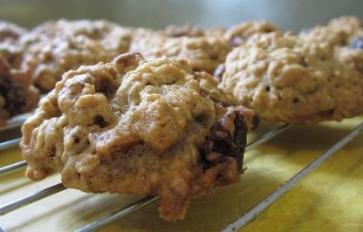
Honey is not only a delicious sweetener, it has long been used for its medicinal properties. Not all honey, however, is the same. Harvesting methods, as wells as the source of honey itself, determines the potency of effectiveness when it comes to healing powers. One of the most effective in the honey world is Manuka honey.
The Manuka bush is native to New Zealand. It is only there where the local bees pollinate the Manuka bush that Manuka honey can be found. Unlike commercial honeys, Manuka honey retains its highly prized qualities. Commercial honeys are often processed and stripped of their beneficial qualities. Manuka honey is highly regarded as a natural medicine, and it is believed to be the best honey on the market.
Manuka honey contains two specific powerful antibiotic components responsible for its power, methylgoxal (MG) and hydrogen peroxide. Compared to other honeys, it has the highest concentration of MG in its flowers. It's the MG that gives Manuka honey its amazing, natural antibacterial properties that truly sets it apart from other types of honey.
How do you know if what you're buying is true Manuka honey?
Well, Manuka honey is tested for its purity in a lab and given a UMF – Unique Manuka Factor - score. This score essentially is measuring the antibacterial level of the honey, thus rating its medicinal value. According to organics.org, the UMF “is the globally recognized standard of identifying and measuring the strength of Manuka honey.” By giving a UMF score to the Manuka honey sold, buyers can be made aware of the purity of their honey. The minimum score is UMF5, whereas the superior quality Manuka honey receives a rating of UMF16 and up.
There is a range of healing properties found in Manuka honey that conventional honey doesn't stand a chance against. The most common use of Manuka is for healing minor wounds and burns. It also has been used for:
1. Reducing Inflammation
The National Cancer Institute approved a proposal that would use “Manuka honey for the reduction of inflammation of the esophagus associated with chemotherapy.”
2. Improving the Gastrointestinal Tract
Research has shown that Manuka honey can alleviate a number of gastrointestinal problems, including irritable bowl syndrome.
3. Oral Health
Studies have shown Manuka honey may be effective in preventing gingivitis and reducing plaque buildup.
4. Lowering BMI
Replacing sugar with Manuka honey can help decrease BMI, which in turn may help reduce overall cholesterol levels.
Manuka honey follows the traditions of using honey for medicine. In taking Manuka honey orally, it is recommend to take a dosage of 1-2 tablespoons before a meal depending upon symptoms. Manuka that is a UMF15 and up should only be taken one tablespoon at a time, due to a higher medicinal grade. Since Manuka honey is medicinal grade, it should not be over-consumed. Too much can also cause an increase in blood sugar. Those with medical conditions should also consult their doctor before taking. While you should not consume large quantities of high grade Manuka honey on a daily basis, a small amount can go a long way.








